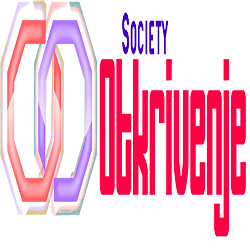Experts are valuable, necessary contributors to our diverse and specialized society. But they cannot and should not be used to constitute or replace civil society. Indeed, the idea that anyone can claim to be a civil society expert is troubling. Civil society needs to be composed of a broad and diverse array of people throughout our societies. The internet offers us an opportunity to radically expand civil society, to debate all of the ideas and ideologies that shape the world, and to publish our speech around the world. We cannot abandon this field to experts, particularly not the much vaunted experts of civil society.
What is an expert? Experts and expertise are usually recognized through degrees earned, publications, experience and notoriety. There are good reasons for each of these things. But each of them can also be troubling. If degrees and titles make experts, then we need to carefully, critically examine the curriculum, the quality, and the ideological biases of our degree offering institutions. If publications make experts, we need to be aware of the obscurity or audience of journals and the public and private funding sources for research. Experience is very valuable; but there are plenty of rich political donors who have become consular officials without a shred of expertise. Notoriety is the most troublesome of the signs and symbols of expertise.
Famous experts are often assumed to be better experts – false. Famous people and celebrities often mistake themselves for experts and think we ought to care what their expert pronouncements are – really false! In addition, experts tend to congregate together and pat each other on the backs by awarding one another fellowships, grants, distinctions and prizes. The Ivy League is the country club of expertise. The longer you hang around, the more your expertise will be burnished, brightened and expanded by all of your expert pals who slap you on the back. Finally, success begets success. People who gain degrees, earn awards, grants and fellowships will earn more of them. If you have not broken into this club by the first year of graduate school, you are unlikely to join it later.
Civil Society Experts
A wide array of civil society experts are called in to analyze, explain and advocate prominent policy issues. From the scientist and the statistician, to the economist and the literature professor, to the historian and the constitutional lawyer, to the retired general and the retired ambassador; there is no shortage of experts to tell us how to think and act and vote in this complicated world of ours. Now we even have technocrats – those elite experts who blend modern technological training with state power to produce utopia in developing nations like China and Chile, well, eventually maybe. Then there are the experts who are not experts. Politicians and rich people, reporters and pollsters get tired of having to ask the experts or hire the experts or hunt around for someone with an advanced degree to advocate their position. So they step up to the mike themselves and are transformed into pundits. But in the end, none of these civil society experts provide us with civil society, or solutions to the problems we must work together to solve.
In the last generation we have seen the rise of a new expert – the technocrat. This is the ultimate melding of expertise with power. Now instead of simply elevating the powerful to power, we elevate (powerful) experts to power. Hey, I love meritocracy. But let us not confuse engineering, business or science degrees with the ability to lead nations and states. Scientists, engineers and CEOs are no better or worse than anyone else at voting with principle, debating important issues, or leading communities.
Perhaps most prominent among civil society experts are scientists and statisticians. Statistics is an important tool for making valid conclusions based on small data sets. But statistics is also undoubtedly the most commonly misused tool for lying in politics, the media and civil society. Next, scientists are specialized professionals who master specific tools and methods for investigating specific, narrow questions. They arrive at provisional, evidence-based answers to those questions. They do not claim to discern truth, morality, wisdom or sound public policy. If you hear a scientist claiming any of these latter findings, then you are listening to a person, who happens to hold a PhD, who also holds an opinion that may or may not be informed, effective, wise or true. Scientists and scientific research are also very expensive, and so they are paid by someone or other. The sources of funding do not determine scientific results, but they can reflect policy analysis and advocacy.
Social scientists form a lower tier of civil society experts. These can include – Political scientists: who analyze politics and may try to tell you how to vote. Economists: who analyze the economy and may try to predict the future (with predictable results). Sociologists: who may or may not perform experiments on small groups of people, then tell you what is wrong with your society and what to do about it. Historians: who analyze the past then complain that you do not know about your past and that everything you think you know about the past is wrong. Anthropologists: who used to study remote cultures and now study ritual in any culture and will tell you how your culture is oppressing some other culture. And so forth. In related fields, literary and cultural critics abound in English, foreign language, and comparative literature departments. Scholars of literature and the arts consider themselves the primary experts on culture, mediators of high culture, and interpreters of all discourse, rhetoric and cultural expression. As a historian myself, I love social scientists and scholars of the humanities. They are often passionately devoted to civil society. But that does not make them experts on civil society.
Lawyers, constitutional lawyers, and law school professors form another common array of civil society experts. These people are trained to think critically, to read and write carefully, and to debate with acumen and rhetorical skill. Lawyers are legal experts, and so if you have legal problems, they come highly recommended. But in other circumstances the society of lawyers tends to make communication incomprehensible, extremely expensive, combative, and fraught with hidden landmines (read any small print lately?). The central problem with trusting a lawyer-expert is that you can find a lawyer who will argue any position. They may believe passionately in it, or they may simply believe in the virtue of arguing for their client. In short, lawyers are useful people to pay to support your position; but that does not make them civil society experts.
Finally, former government officials and diplomats are ubiquitous civil society experts. Former domestic or foreign policy advisors-now pundits, former generals and military officers-now private contractors or military advisors, former ambassadors-now think tank fellows, former congressmen-now lobbyists, former spies-now novelists, former bureaucrats-now whistleblowers. These people may or may not have done effective service for their governments in the past. They may indeed have garnered very useful experience. But you may be sure that these particular civil society experts certainly cultivated well placed friends, political favors, and public notoriety. Listen to such experts with care.
Experts who aren’t
There are a variety of people who by virtue of their professions or positions voice their opinions and ideas with great authority – as if they should be listen to, believed and followed. Many of these experts are not experts at all.
First, politicians – Politicians are experts of campaigns and fund raising. They may be statesmen or stateswomen; they may be wise or principled; they may be experienced or expert in some field; but they are not necessarily any of these things. Generally, politicians (as politicians) are not experts. Elected government officials deserve respect on two levels. First, they have succeeded at communicating their ideas, marshalling personal and monetary support, and managing a campaign in order to attract democratic votes. This is a real achievement; but it does not make them a civil society expert. Second, successful politicians eventually accrue a great deal of experience in the halls of government. This is a mixed blessing in that these politicians have opportunities to contribute toward functioning governance and to help solve societal problems; but they just as frequently take those opportunities to perform bad governance, to fail to solve societal problems, and occasionally to become part of the problem. Few politicians are experts.
Rich people and celebrities – wealth, power and notoriety do not grant expertise. Celebrities are almost never experts and should not speak any louder than anyone else. Rich people are able to buy and broadcast louder speech, but it does not make them experts. (And then there is the stray expert who somehow gains celebrity. Expert-cum-celebrities sometimes deserve their notoriety. Some of them have gained celebrity through a lifetime of achievement crowned with high awards – Nobel Prizes, medals, honors, etc. These people mark an exception to the celebrity rule, but their celebrity is usually fleeting. How many Nobel Prize winners for the sciences can you name?)
Reporters and pundits – the press has become increasingly openly ideological. As the media has opened its ideological content, journalists, columnists, news analysts and pundits of all kinds have proliferated and expressed their opinions in ever increasing volume. Reporters and pundits are often widely informed by virtue of their interviews and reportage; they are also often very good rhetoriticians. Personally, I believe that open, honest, ideological expression by the press is much better than veiled or even unconscious bias contained in misleading headlines or buried ledes. But being published in print or being broadcast on cable does not make anyone an expert.
Pollsters – the ultimate non-experts. These are people who are paid to ask a representative sample of regular people what they think, then to use statistics and their analytical powers to discern what everyone thinks. Well, polls can be interesting; they might even in some cases be beneficial to policy makers or civil society. But how any of this makes pollsters experts is beyond me. Nevertheless, pollsters have become increasingly common media experts who provide journalists and pundits with a window into the mind of the common woman on the street. Where is the expert here? Wizard of Oz, we see you behind your curtain!
Finally, there is the all too common spectacle of the expert parading in public who establishes their credibility by lambasting their field of expertise – the expert insider critic or expert whistleblower. Have you seen the accredited psychologist who attacks the field of therapy or psychoanalysis right before lathering their audiences with a thick layer of relationship advice? What of the conservative scholar (tenured) who bravely eviscerates academia from within? Or the anti-medicine MD? How about the government civil servant whose civil rights (and political views) were so trampled that he had to give hundreds of media interviews to show how reactionary the government is? We could multiply examples. These experts are remarkable because they attack the root of their expertise, while all the time utilizing the same expertise to convince us we ought to trust and listen to them. Most remarkably, the slickest exploiters of the expert-insider-critic shtick actually manage to make us trust them more than other experts, even as they savage the root of their expertise.
Your Civil Society
One of the major critiques of new media on the Internet is that it accumulates much noise and little substance – too much riff raff and too few experts. Wouldn’t it be better to gather quietly at the feet of wise experts, rather than sift through all of the shouting, competing voices in new media echo chambers? Oh, I have heard elderly reporters wax lyrical as they recalled the days when everyone listened to Cronkite and read the New York Times, because back then we knew that was the way it was. This common, elite meme argues that we actually need fewer media









